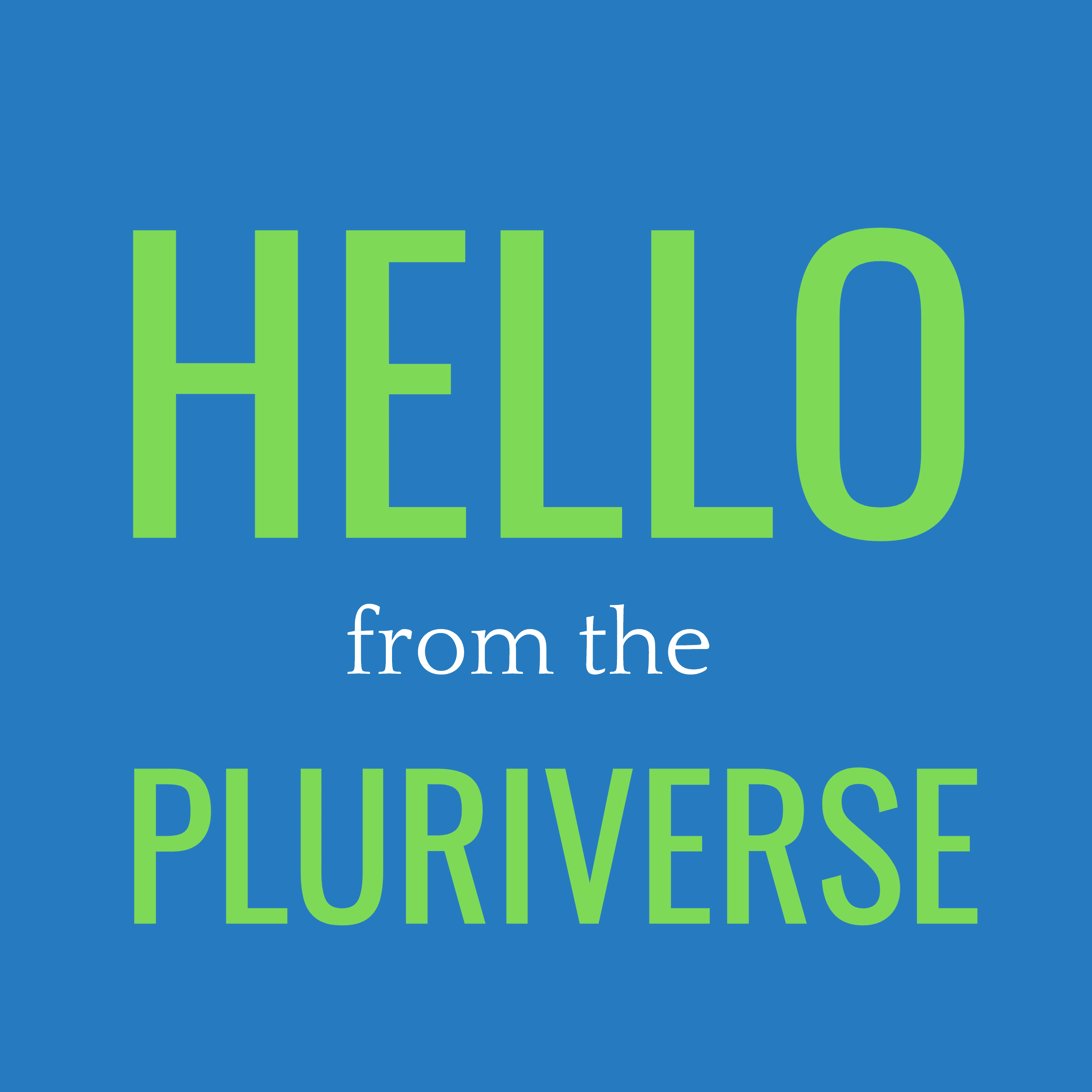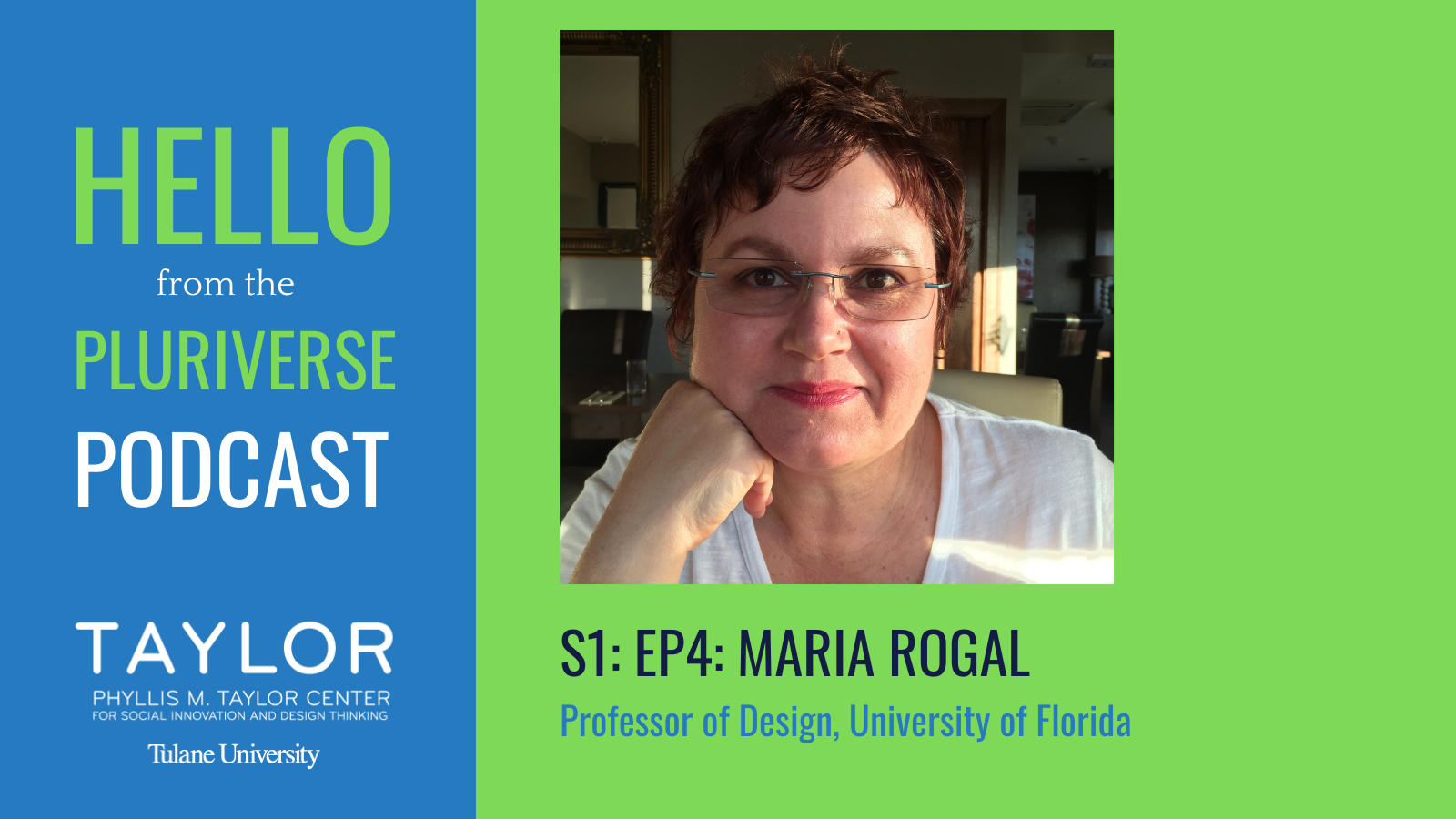Maria Rogal is currently a professor of design at the University of Florida and her work spans disciplines, applications, and place. Her upbringing, education, and experiences have all been diverse, enriching, and make her the conscientious designer she is today. Always cognizant of visual language in the environment, Rogal found her passion for design growing up outside the United States. Moving from places ranging from Laos to Peru to Liberia, Rogal needed to be aware of the signs to maneuver around these different cultures and landscapes. When she returned to the United States for college, she majored in political science and shortly after graduation worked for a grassroots devolvement agency that worked in Latin America, where she saw how people in their local communities were creating design work to improve their lives. Coupled with her love of art, Rogal discovered the design field and went back to school to study. Rogal’s background in political science as well as design has allowed her to embrace systems thinking as a method of identifying and solving problems.
Her work is rooted in acknowledging inequalities in these systems and seeking opportunities design can contribute to making change people want. With collaborators in México, she explores gender equity, cultural identity and representation, economic freedoms, and environmental justice through a horizontal lens, one approach to decolonizing design. While design thinking is user-centered, Rogal includes the caveat that humans are not at the center by themselves, that their environment and its health is also a crucial part of the context of solutions to any problem.
About Maria Rogal
Pluriverse Publication Chapter: Maria Rogal
Written by Ruby Murfield and edited by Natalie Hudanick.
- Download a PDF Layout of the Maria Rogal chapter in the Pluriverse Publication.
Always cognizant of visual language and environmental print, Maria Rogal, a professor of design at the University of Florida, designer, and founding director of Design for Development (D4D Lab), found her passion in design from using visual language and things to navigate the language barriers that were present in her life growing up outside the United States. From Laos to Peru to Liberia, Maria always needed to be aware of the signs to maneuver around different cultures and landscapes. When she returned to the United States for college, Maria majored in political science, and shortly after graduation, she worked at a small development agency that had projects in other countries, like Columbia and Venezuela, in which people from local communities were creating design work that was improving people’s lives. This agency, and her involvement, helped Maria to realize the ways in which she had the potential to impact people’s lives through design. This experience, coupled with her love of art, caused Maria to go back to school for both her bachelor and master’s degree in design.
For the past twelve years, Maria has worked on Honey Projects, which is a small cooperative designed to help rural beekeepers get packaging and marketing assistance to enter a market historically unavailable to them by moving away from hierarchies. Over time it has now become a ten-cooperative project. Maria has also worked to design an accessible marketplace to Mexican artisans who historically have not had access to marketplaces, especially the higher end marketplaces. Another major project that she has been working on is the Mira Project, an artistic creative process, that includes interviews, short ethnographies, and stories. The Mira Project has also been a way for Maria to understand and frame how “Mayan-ness” is presented in Mexico, a population she has been working with in Southern Mexico. In learning how to frame “Maya-ness”, Maria has been able to learn how to articulate and understand the stereotypes that are framed around the Maya people. These projects that Maria has been a part of have evolved over time and ultimately take time to be successful, she illustrates this by saying that design is slow design, and that it never happens overnight.
Within all these projects Maria works to use horizontal design methods. She defines horizontal design as a type of design that takes away or attempts to peel back hierarchies so all stakeholders can come together on an even playing field where everyone’s voice matters, flatten out the power structures within societies and cultures, to help bring access to design to people who may have historically been left out of design. Horizontal methods are used by her frequent collaborator and colleague, Sarah Corona Birkin, a communications professor at the University of Guadalajara. Their work together involves eliminating hierarchies in design and access, a method of horizontal design. This collaboration is a cornerstone of design because it allows people who will be impacted by a project to receive help to solve these problems, everyone’s opinion matters in this type of environment. Also, within her projects, Maria uses decolonization methods that can go hand-in-hand with horizontal methods. To Maria, decolonizing is about decentering from only a Western type of knowledge. This idea of decentering works to use and respect, within the design process and within horizontal methods, different kinds of knowledges in the conversation, and understanding that these knowledges do not have to be credentialed.
For design thinking, Maria is delighted by the concept of reimagining how design education is being diversified, taught and diffused. To her there is the designing thinking that is part of the design process, that designers do all the time, and then there is the part of design thinking that is about bringing other people into the conversation. This part of design thinking is about facilitating conversations between designers and non-designers using design thinking methods. Maria calls this form of design thinking as “design looking outwards”. She believes that the more designers there are doing this type of design work and design thinking, the more equitable design becomes.
Maria is eager to see how design thinking allows people to feel comfortable to stop following the rules and memorizing, and to instead, start to create your own opportunities and recognize the creative thinking all around them. It’s about how to start thinking creatively for themselves using the design thinking process. When people discover that the world is open, they can then create their own opportunities by applying design thinking around themselves and others. This has been one of the critical components of designers working with non-designers. It’s important to think of how we train people in communities to be designers because designers can be everywhere.
Maria’s own firm, Design for Development, is currently in the midst of a rebranding, moving away from development and its connotations, and towards Design for Autonomy, a more grassroots firm which focuses on people’s right to flourish, to have autonomy of creating their own worlds and their own directions. Maria takes a sustainable mindset to social innovation because to her, if your ‘solution’ is not self-sufficient then it “probably was not sustainable in the first place, and not much of a solution.”
Maria incorporates a human-centered approach into her design process and methods. She comments, though, that human-centered design is not only important to designers, but also to non-designers. While design thinking is typically human or user centered, humans are not at the center by themselves, their environment, and its health, is also a crucial part of the context of solutions to any problem. Human centered design is about considering context, that people identify a need and have a use for. It’s about having respect for the autonomy, and people as experts. Ultimately, we are designing with people in context.
- Instagram: @hellopluriverse
- Twitter: @hellopluriverse
- Email: taylor@tulane.edu
- Subscribe to our newsletter
The Hello from the Pluriverse Podcast aims to open up and create a space to have conservations about the pluriversality in design.
This podcast is a project of the Design Thinking for Social Innovation Program at the Phyllis M. Taylor Center for Social Innovation and Design Thinking at Tulane University.
Executive Producer: Lesley-Ann Noel, Ph.D
Sound editing
- Max Esperance
- Lavonte Lucas: xn--vonni-fsa.com, Instagram: @vonnieradass, Twitter: @vonnieradass
Hello from the Pluriverse 2020-2021 Student Team
- Max Esperance – Podcast lead
- Natalie Hudanick and Michaeline Anglemire – Editors
- Tiwani Oseni – Communications
Hello from the Pluriverse 2019-2020 Student Team

